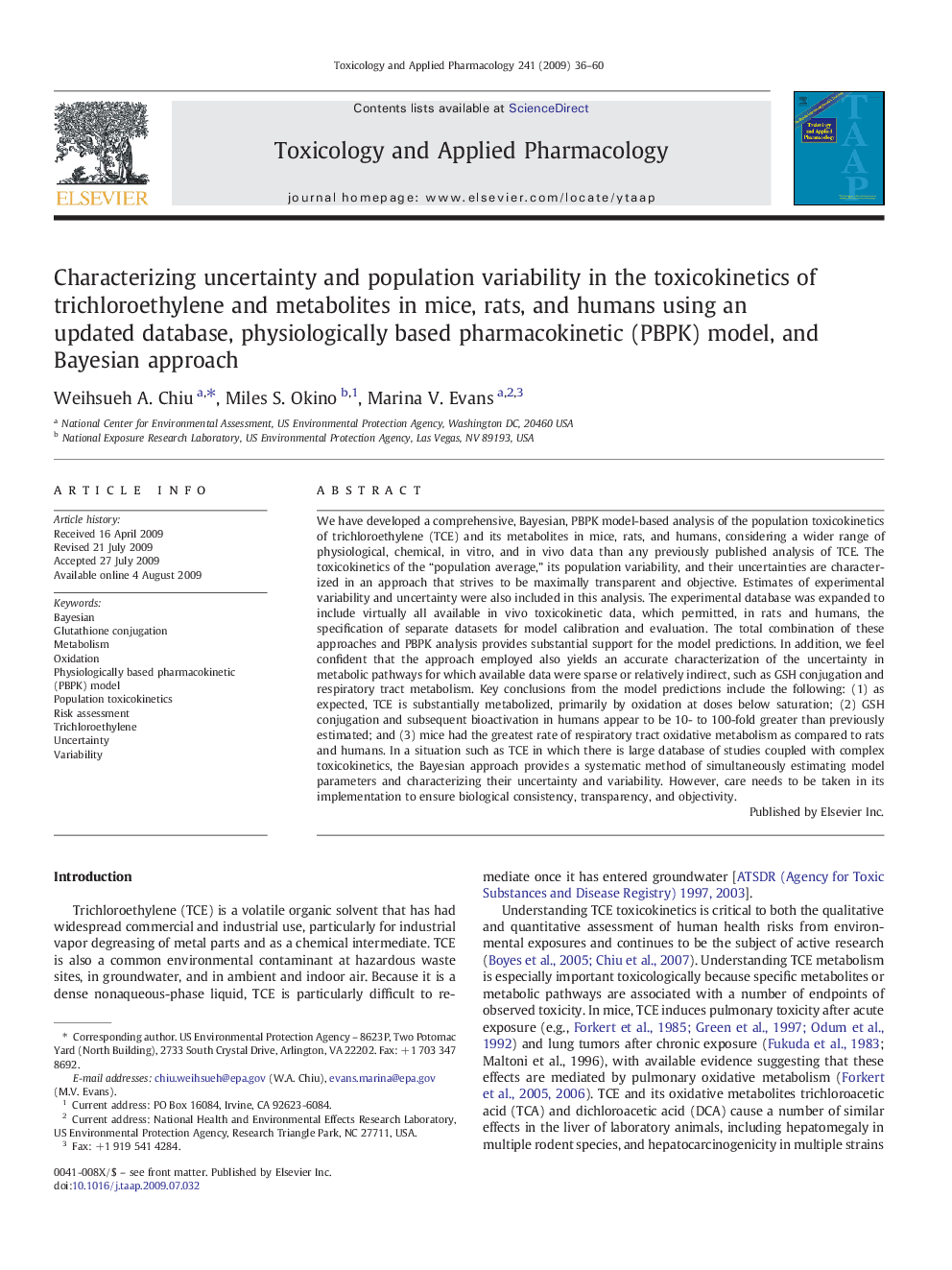| Article ID | Journal | Published Year | Pages | File Type |
|---|---|---|---|---|
| 2569953 | Toxicology and Applied Pharmacology | 2009 | 25 Pages |
Abstract
We have developed a comprehensive, Bayesian, PBPK model-based analysis of the population toxicokinetics of trichloroethylene (TCE) and its metabolites in mice, rats, and humans, considering a wider range of physiological, chemical, in vitro, and in vivo data than any previously published analysis of TCE. The toxicokinetics of the “population average,” its population variability, and their uncertainties are characterized in an approach that strives to be maximally transparent and objective. Estimates of experimental variability and uncertainty were also included in this analysis. The experimental database was expanded to include virtually all available in vivo toxicokinetic data, which permitted, in rats and humans, the specification of separate datasets for model calibration and evaluation. The total combination of these approaches and PBPK analysis provides substantial support for the model predictions. In addition, we feel confident that the approach employed also yields an accurate characterization of the uncertainty in metabolic pathways for which available data were sparse or relatively indirect, such as GSH conjugation and respiratory tract metabolism. Key conclusions from the model predictions include the following: (1) as expected, TCE is substantially metabolized, primarily by oxidation at doses below saturation; (2) GSH conjugation and subsequent bioactivation in humans appear to be 10- to 100-fold greater than previously estimated; and (3) mice had the greatest rate of respiratory tract oxidative metabolism as compared to rats and humans. In a situation such as TCE in which there is large database of studies coupled with complex toxicokinetics, the Bayesian approach provides a systematic method of simultaneously estimating model parameters and characterizing their uncertainty and variability. However, care needs to be taken in its implementation to ensure biological consistency, transparency, and objectivity.
Keywords
Related Topics
Life Sciences
Environmental Science
Health, Toxicology and Mutagenesis
Authors
Weihsueh A. Chiu, Miles S. Okino, Marina V. Evans,
